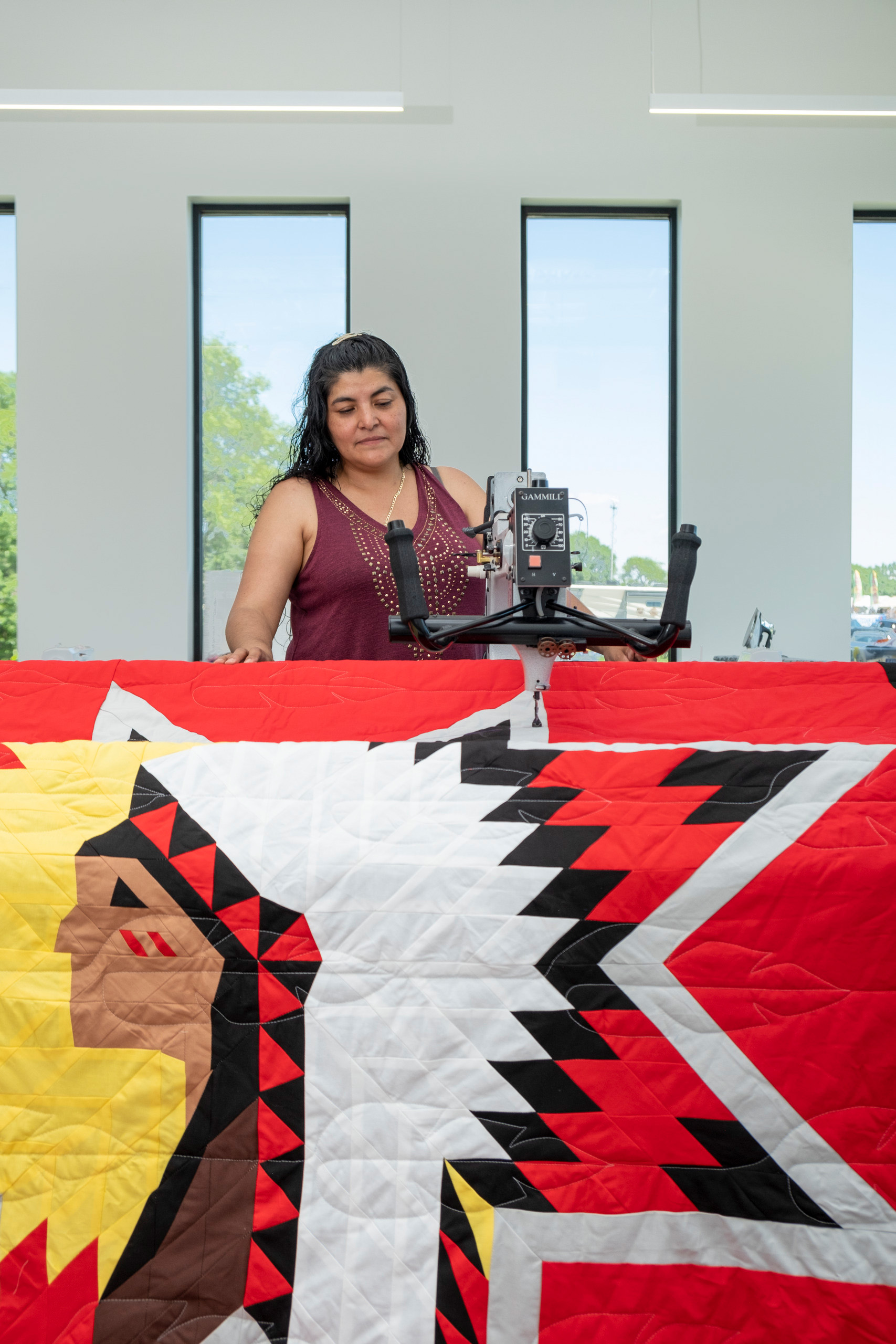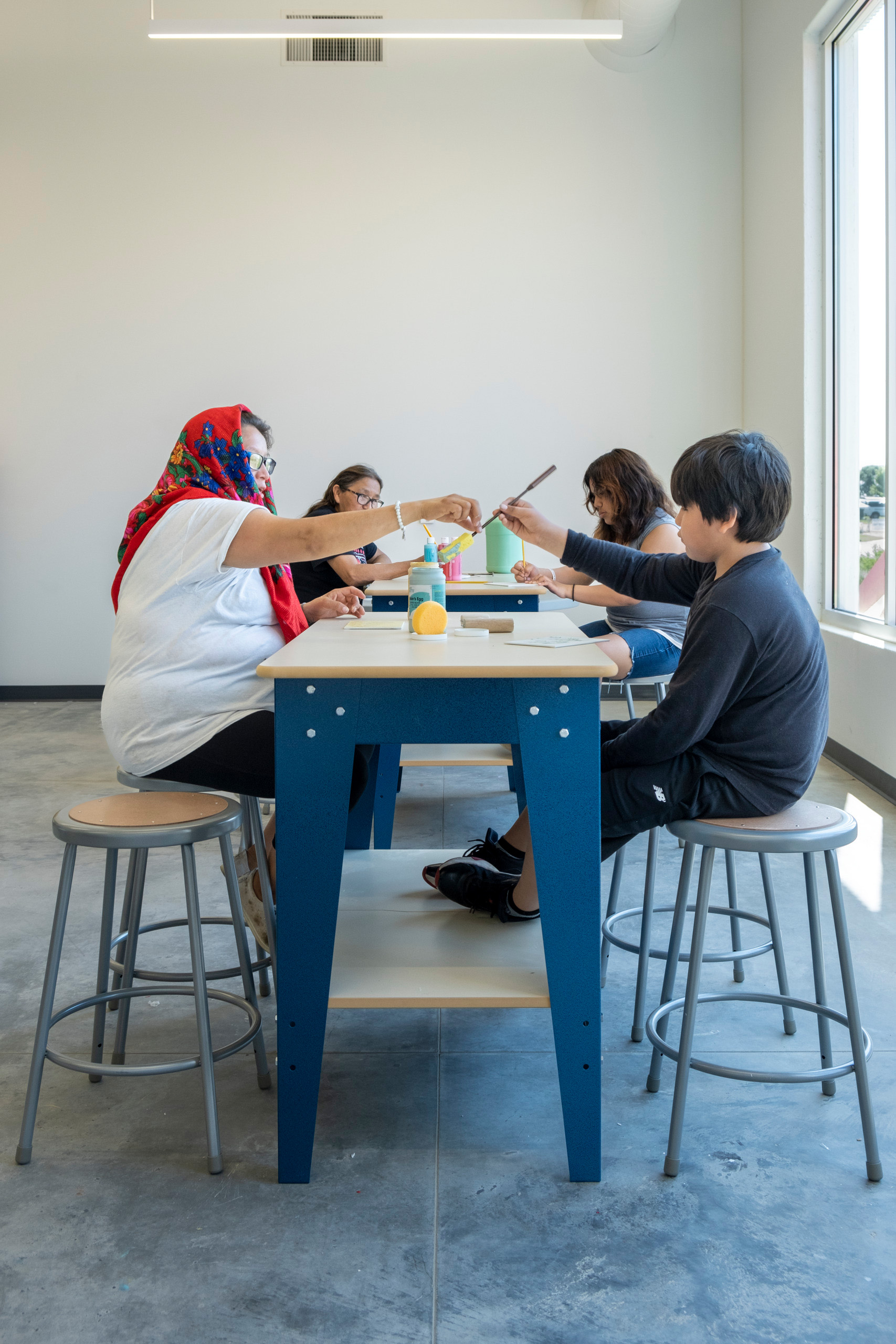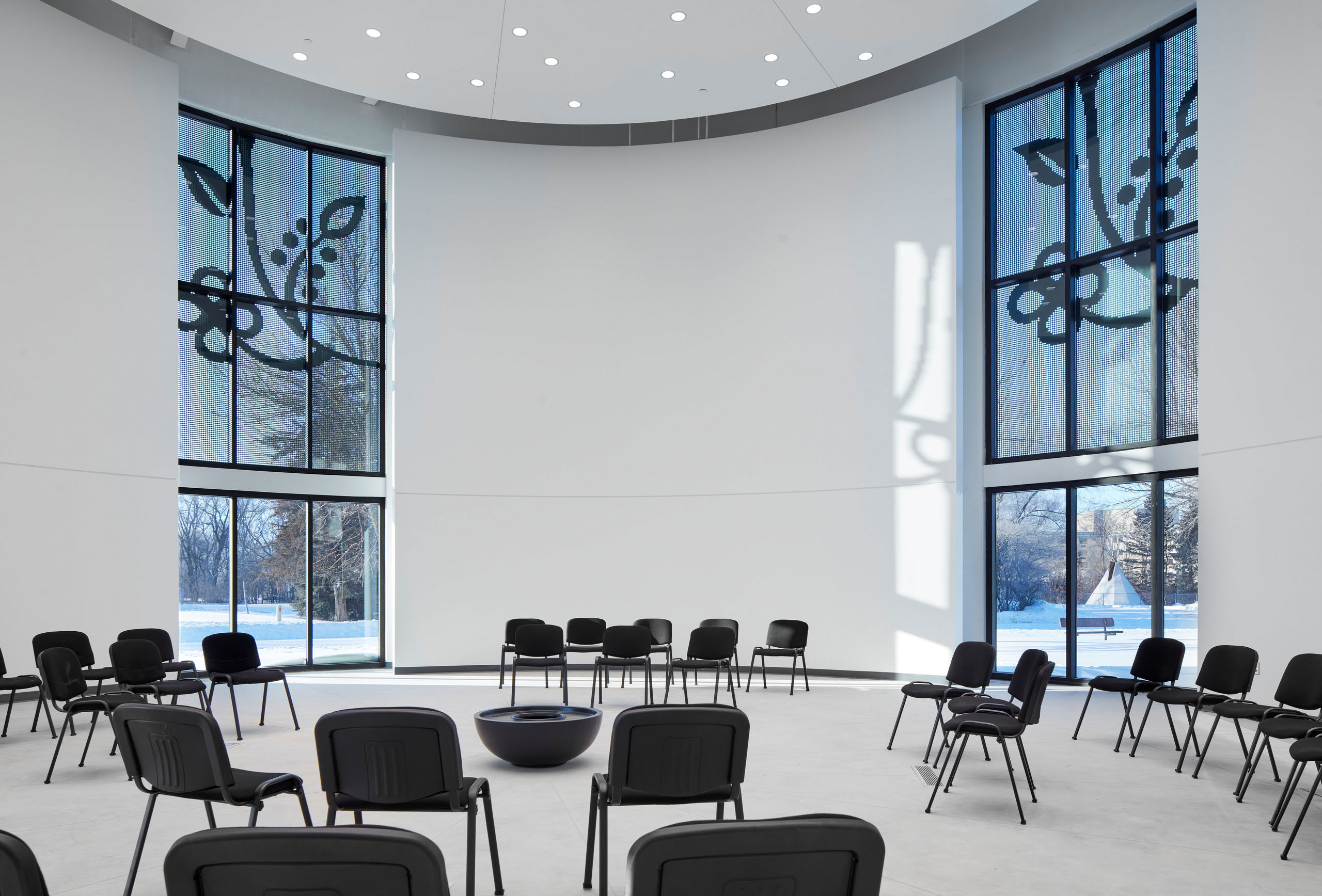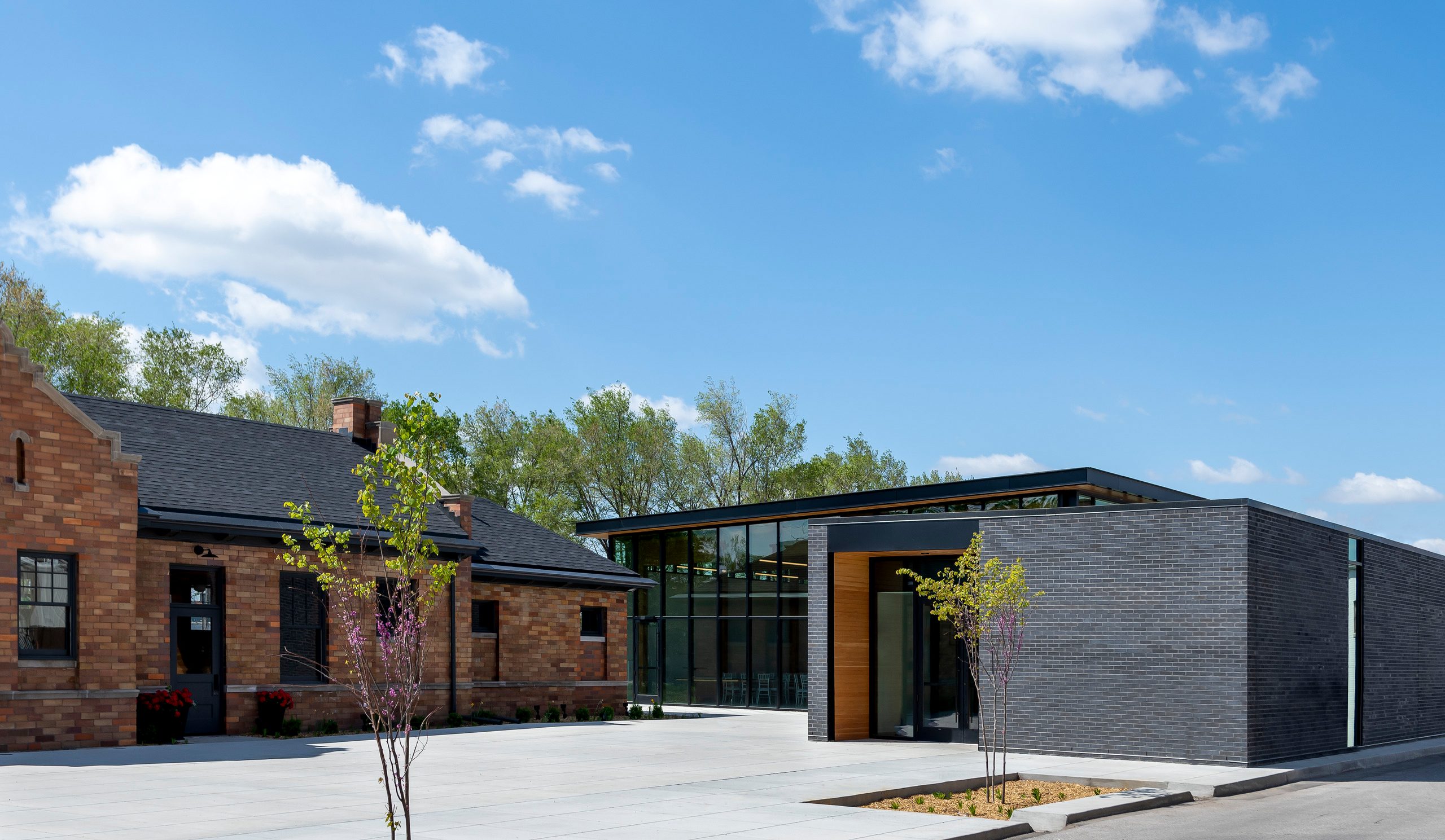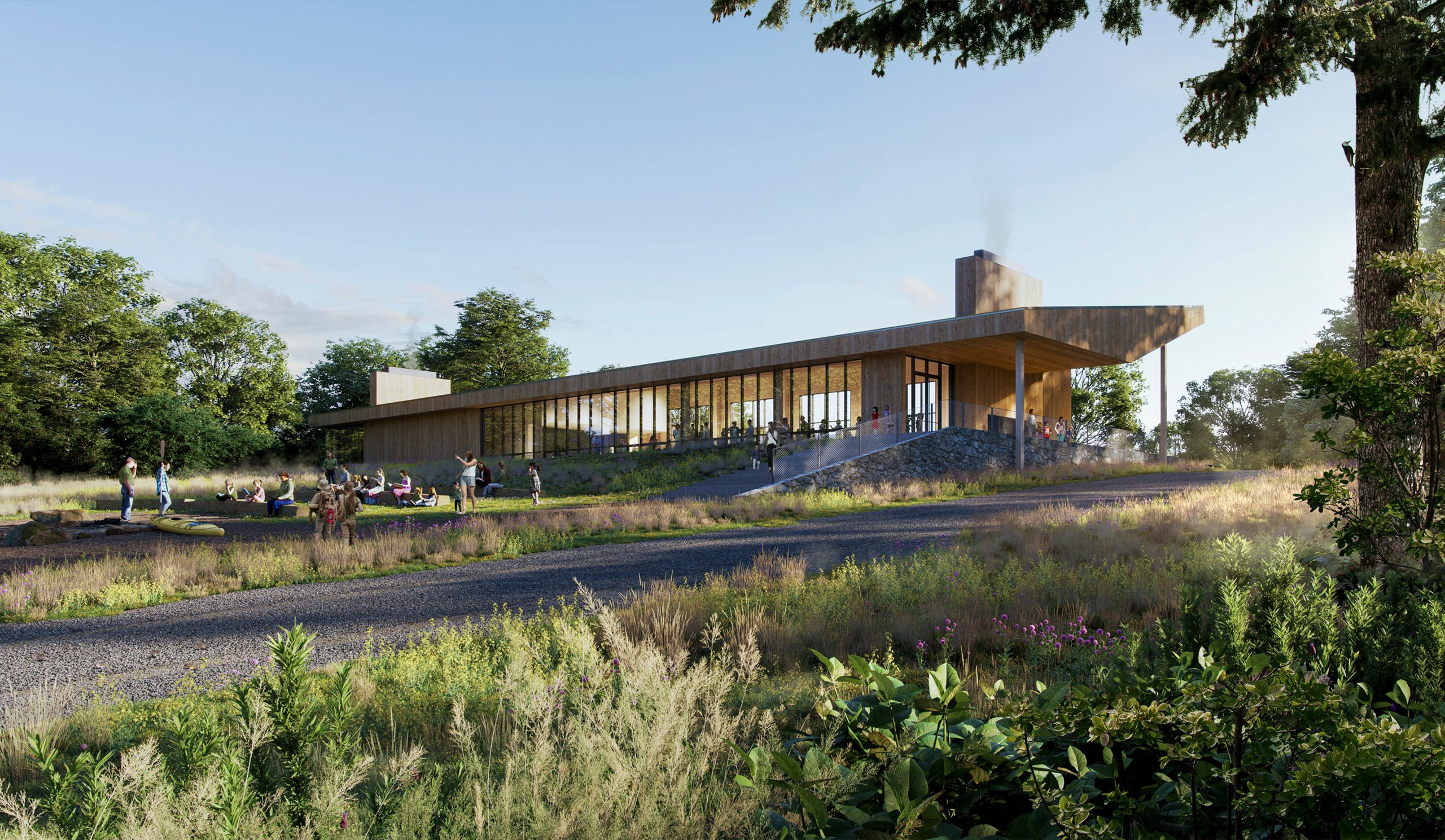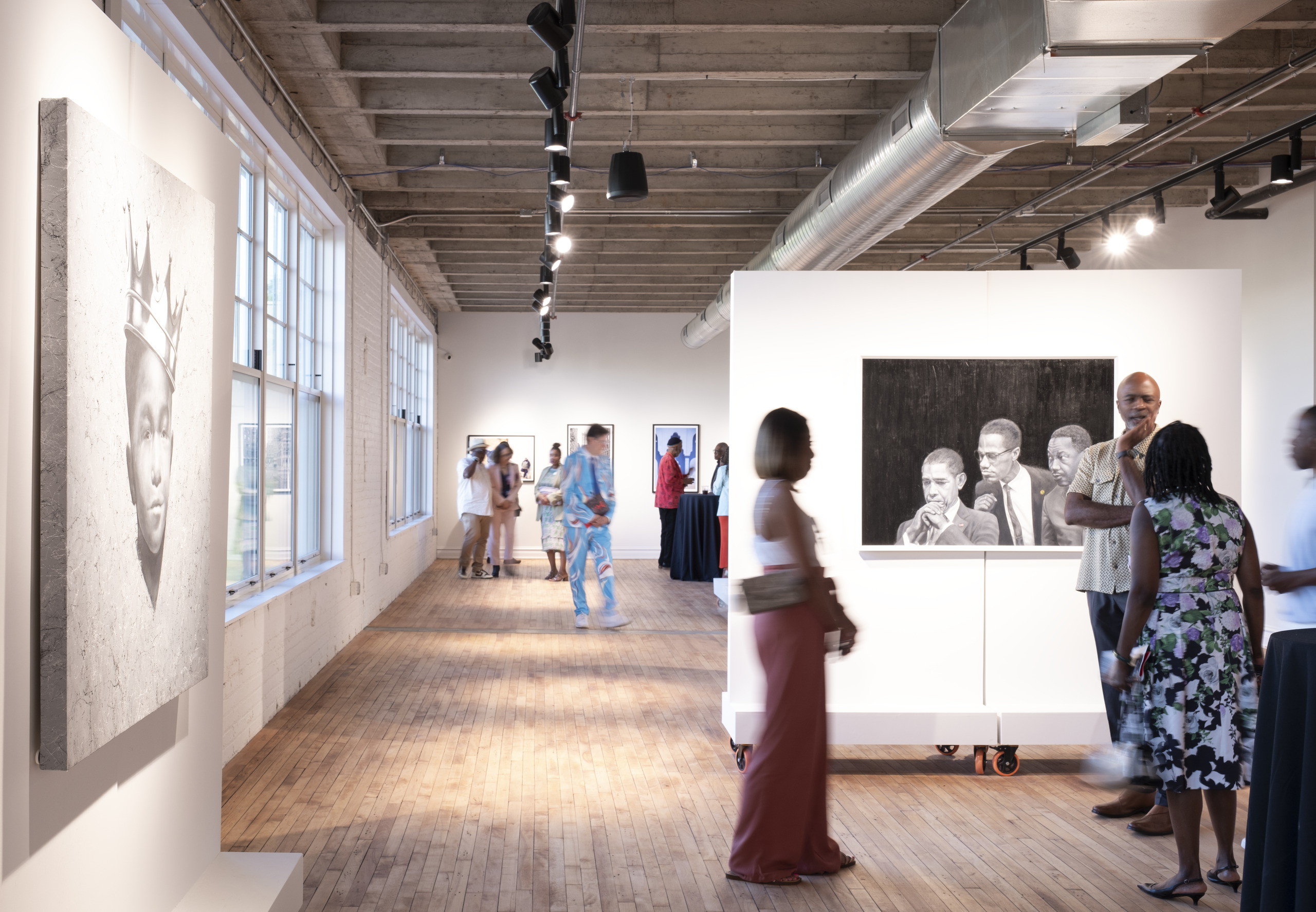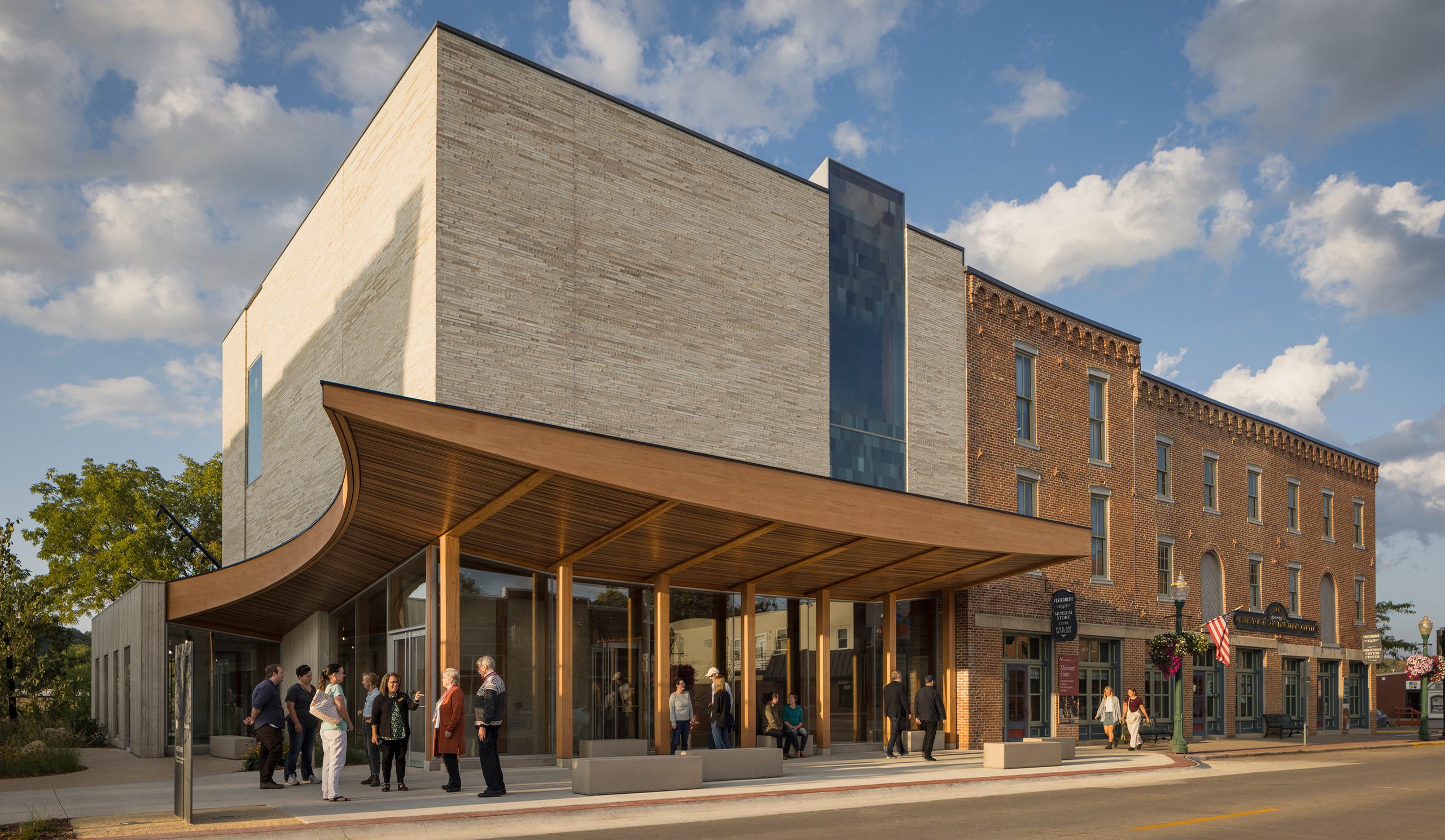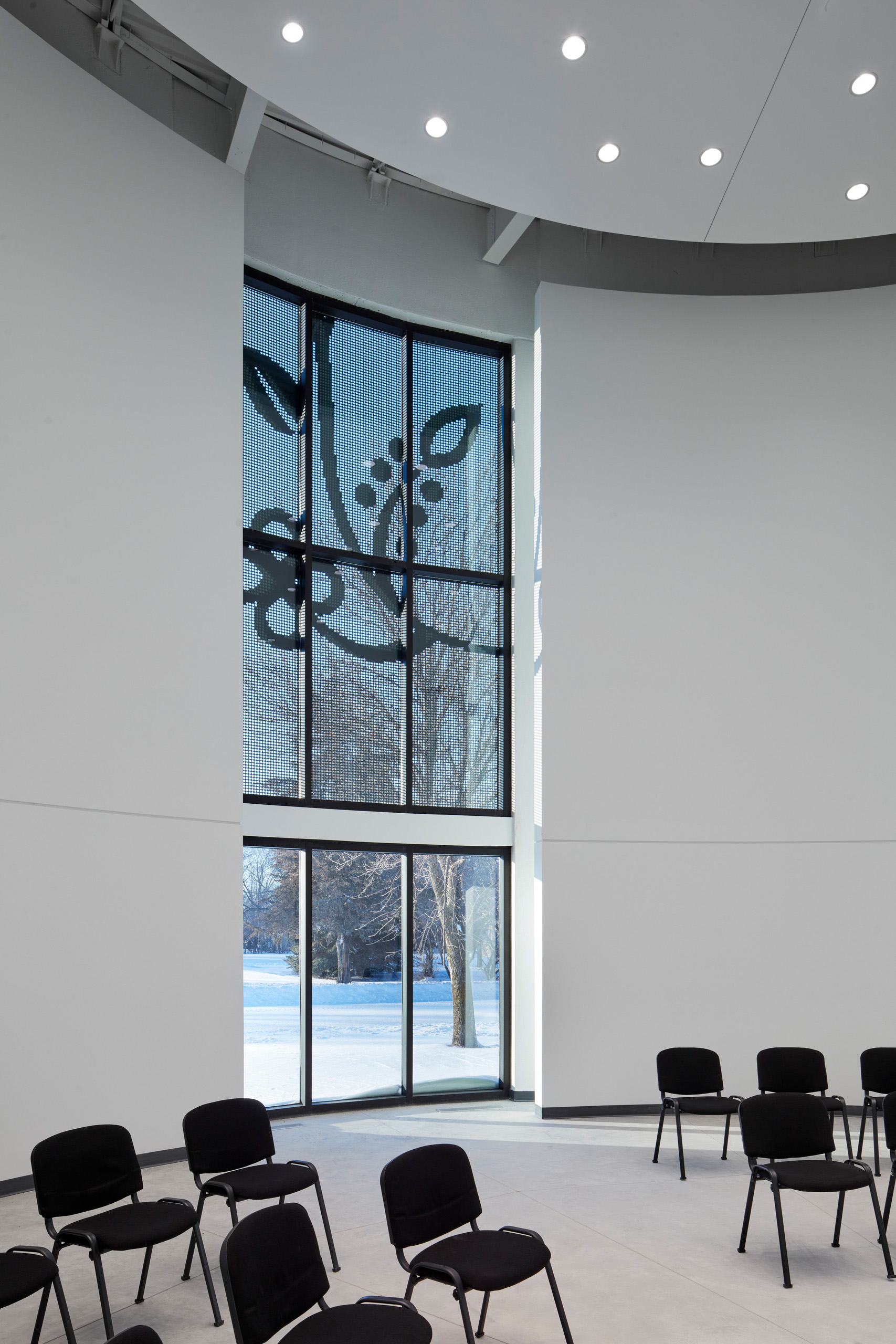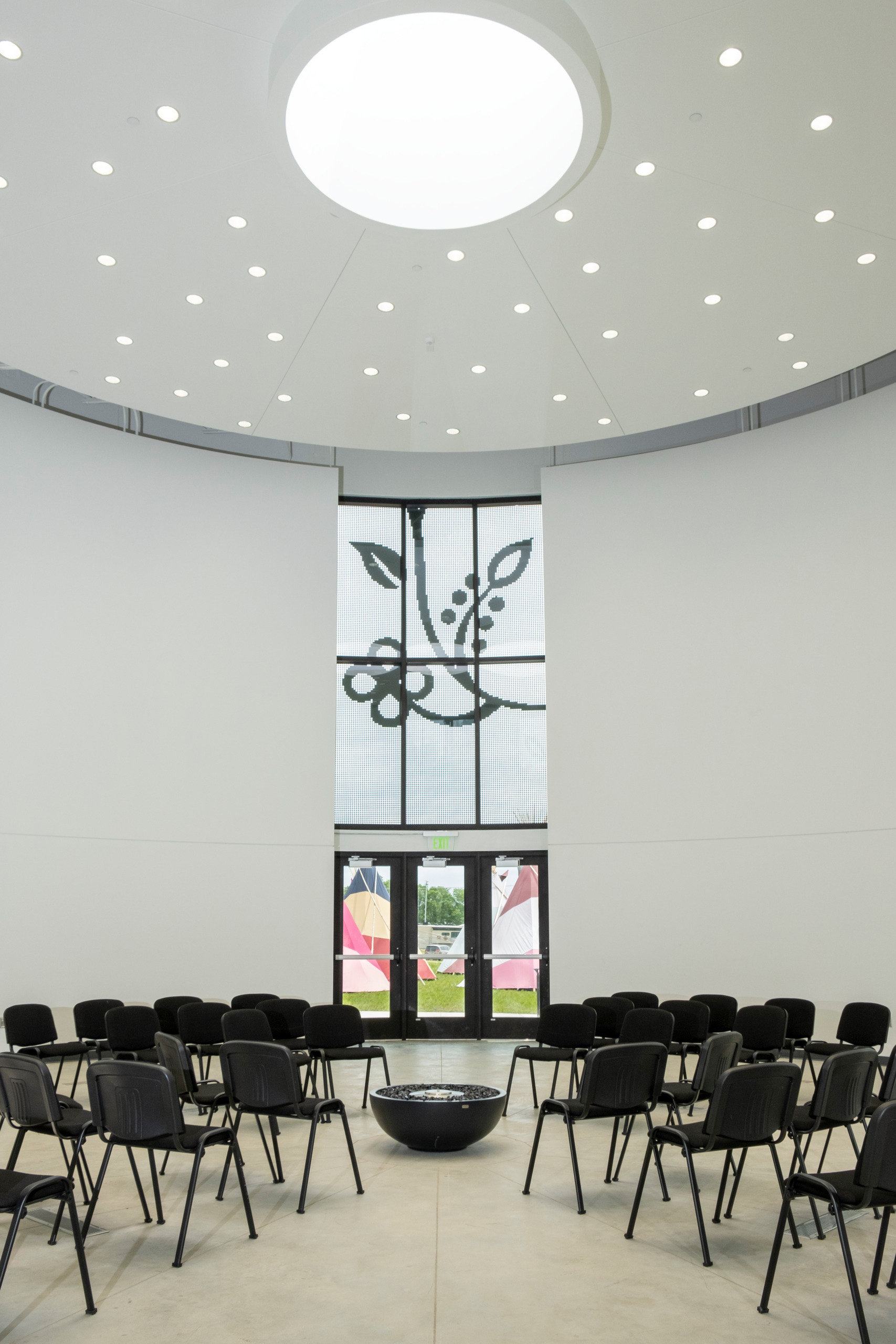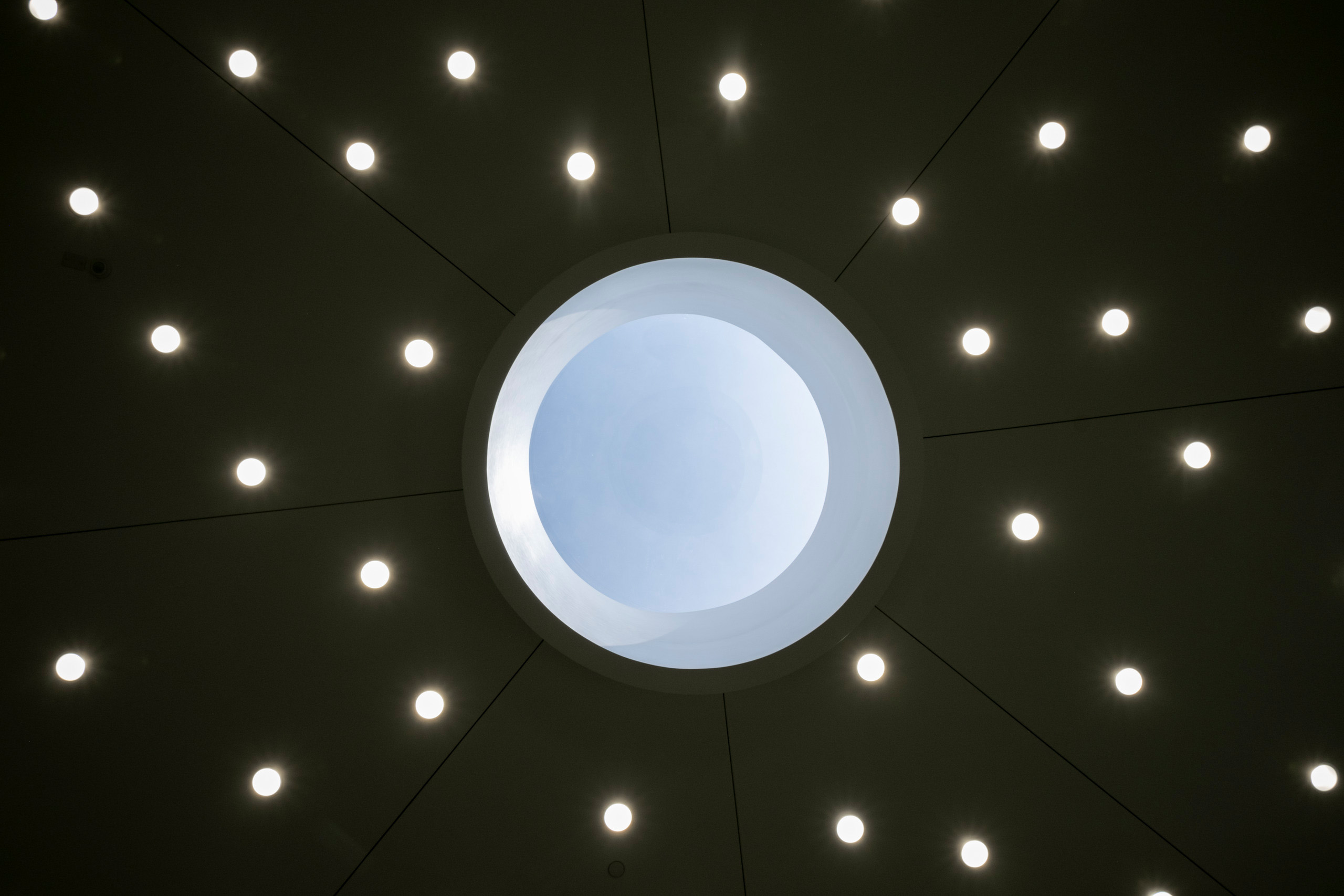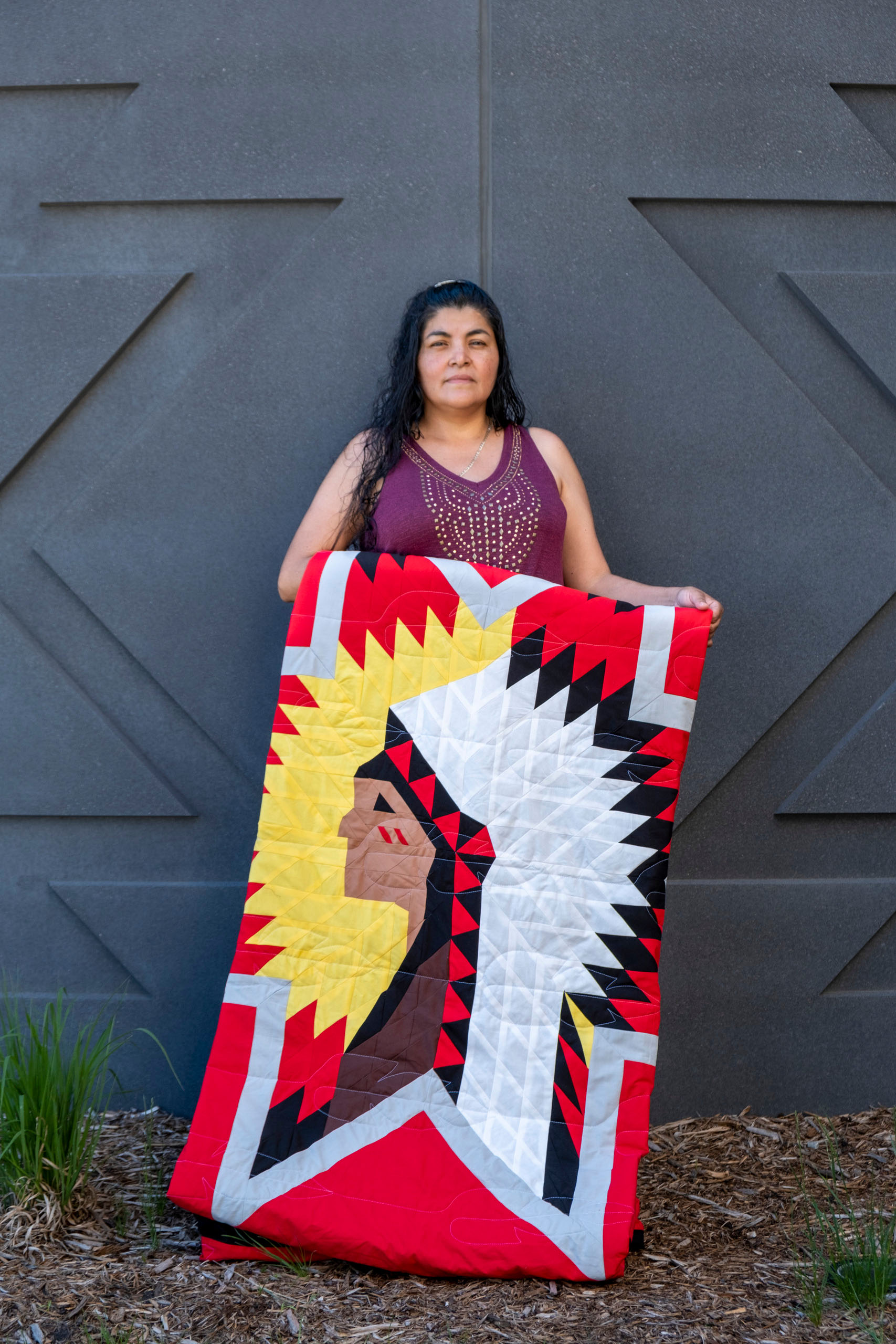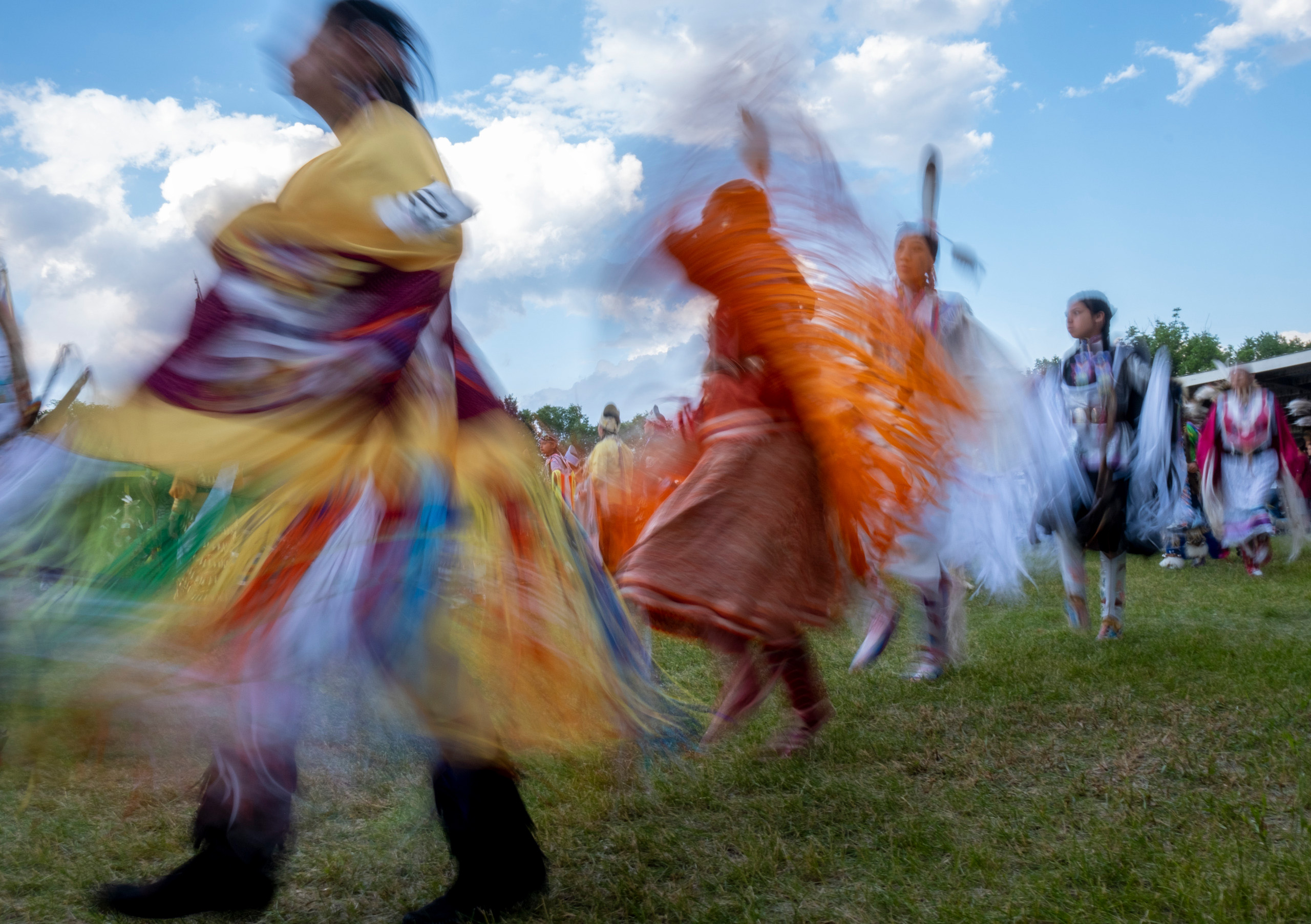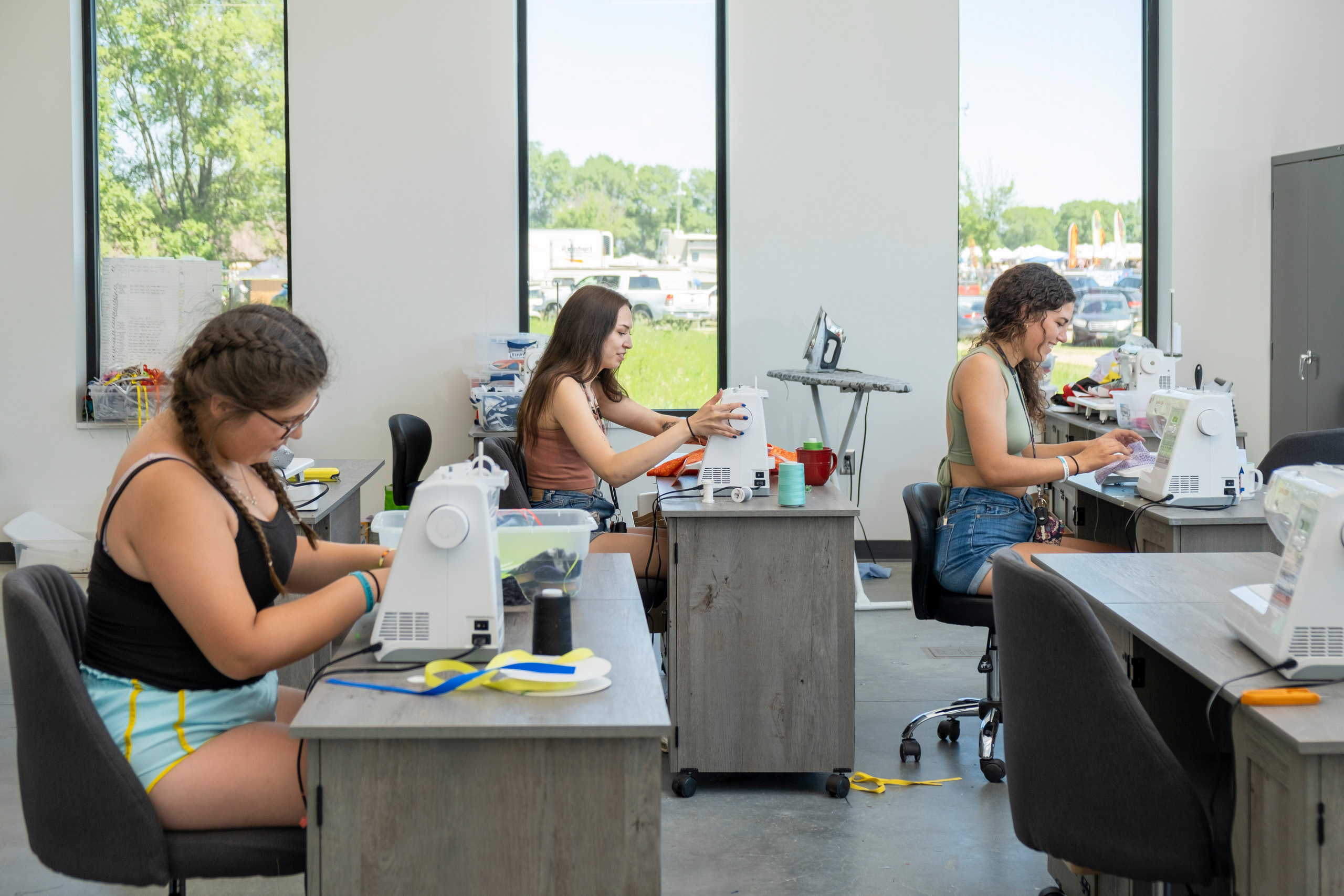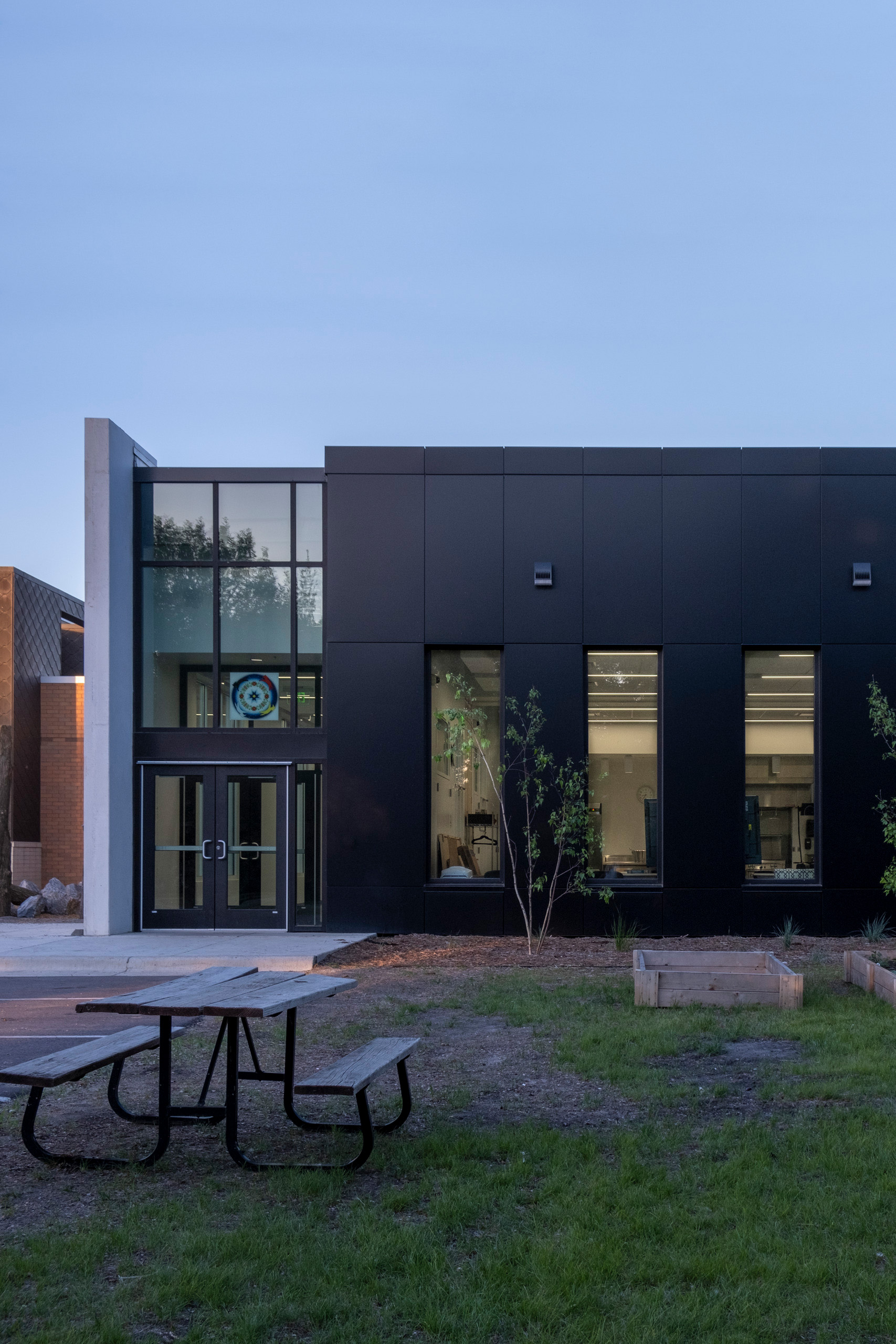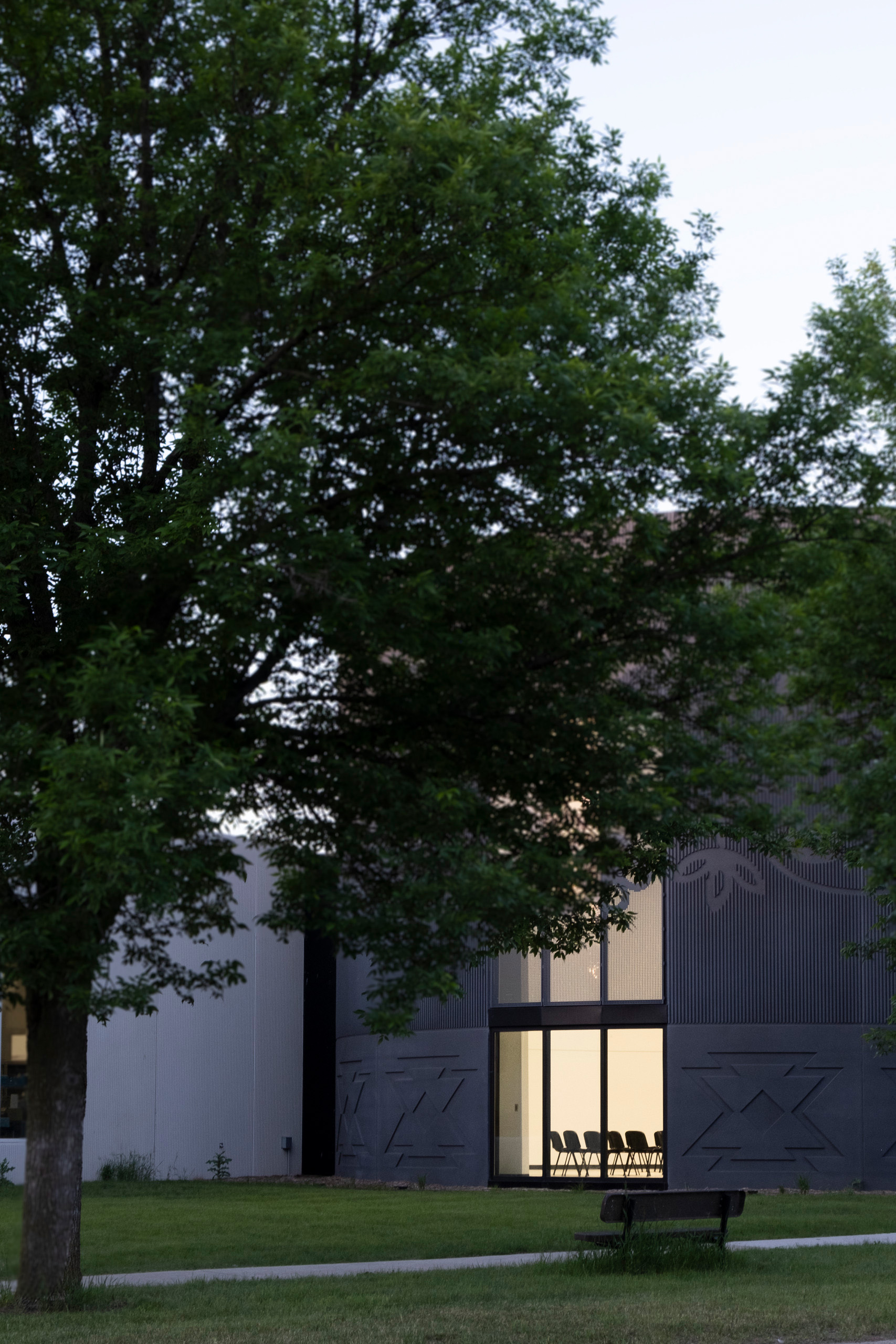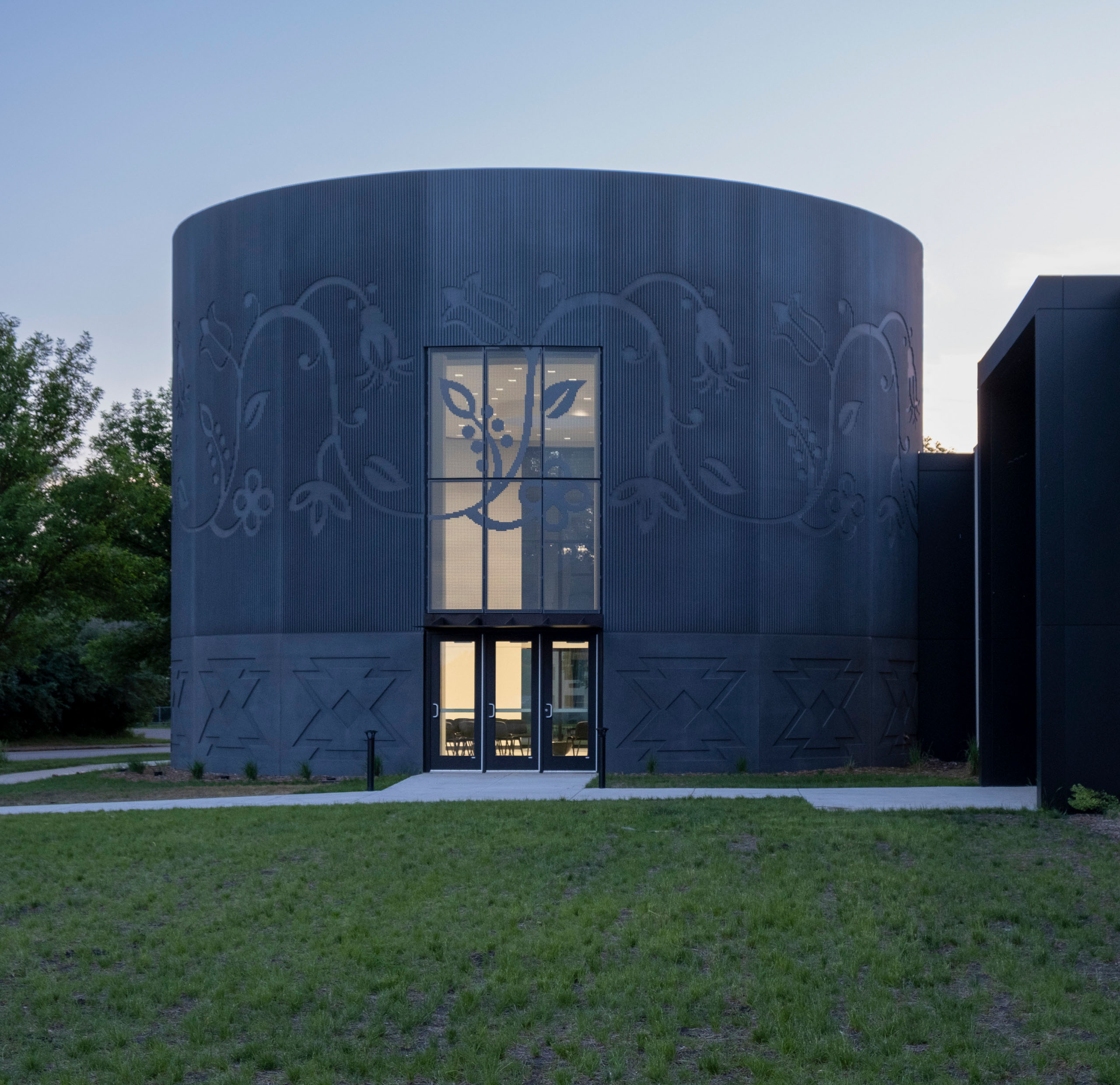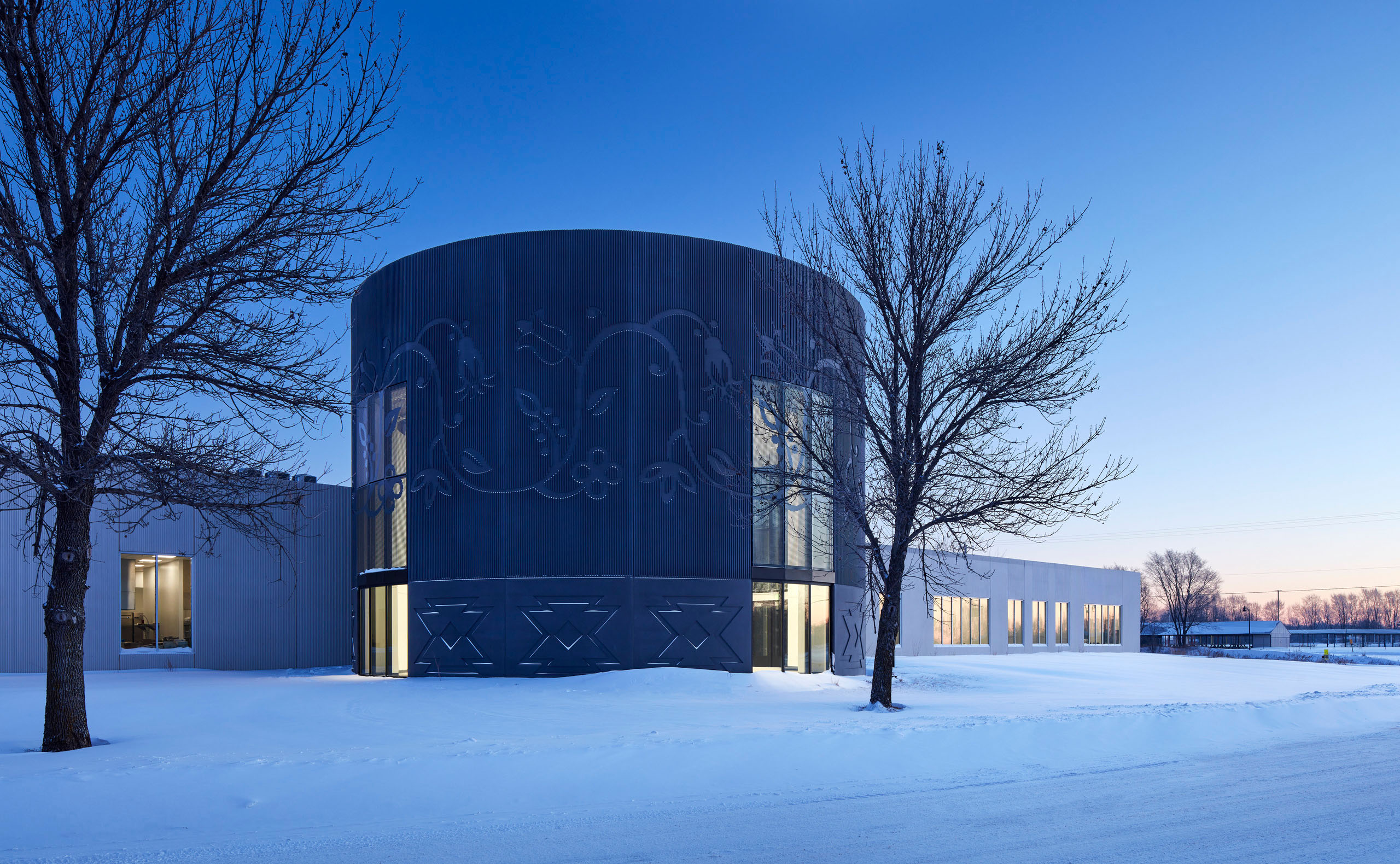Lower Sioux Multigenerational Cultural Incubator
A sacred gathering space promoting intergenerational engagement and preserving indigenous knowledge
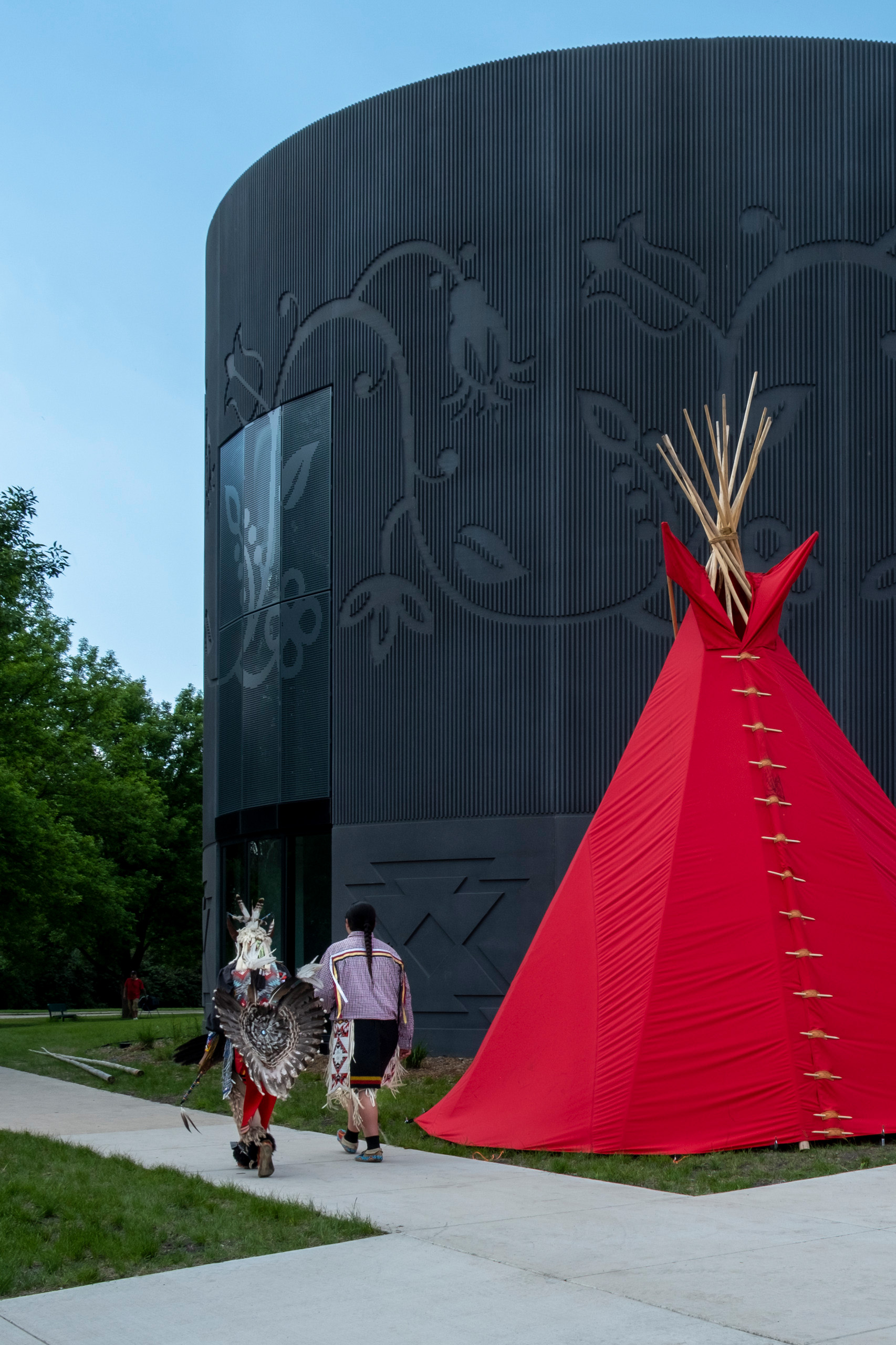
Information
- Location Morton, Minnesota
- Size 15,950 SF
- Completion 2021
- Services Architecture
BNIM, in partnership with Ferguson Pyatt Architects, was selected to design the Cansayapi Wicoicage Oti (CWO) in Morton, Minnesota. The purpose of the CWO is to strategically promote intergenerational engagement, cultural transmission, art mediums, continuation of their indigenous language, and economic well-being at the Lower Sioux Indian Community.
The 16,000 square-foot addition features community gathering spaces for youths, adults, and elders while supporting entrepreneurial development and education. A feasibility study completed in May 2018 by Sweet Grass Consulting outlined desired programming for the space based on feedback from community focus group discussions. These included: individual artist studios; and shared artist studios for collaborative work and intergenerational transfer of knowledge; a public gallery space and retail space (with online selling platform); classrooms for entrepreneurial training; a teaching kitchen; computer lab with media room and radio station; a library; meeting spaces; dedicated activity spaces for each age group; and a large, shared community space that is open to the public for community gatherings and events.
Impact + Innovation
The new building is sited to reorient the public face of the building to the south. This creates a new welcoming entry to the existing facility, increases visibility along the street, and takes advantage of passive solar heat gain. A new arts courtyard and lawn allow for interior spaces to spill outside of the building and support larger community gatherings. The building is equipped with an energy efficient heat pump system which gives the community a path to net zero energy, as future solar and geothermal investments are made.
Overall, the Cansayapi Wicoicage Oti demonstrates the concept of designing with communities rather than for them. At the start of the project, the design team engaged with the Indigenous community to establish a strong relationship and fully understand their goals and needs for the final design of the building. Putting the voice of the community at the forefront, the new building serves as a vehicle for change for the younger generation to shape the future. The building has become a bridge between generations by providing spaces for elders to share traditional thought processes and way of life with the younger generations through art, language, storytelling, native foods, and organic conversations.
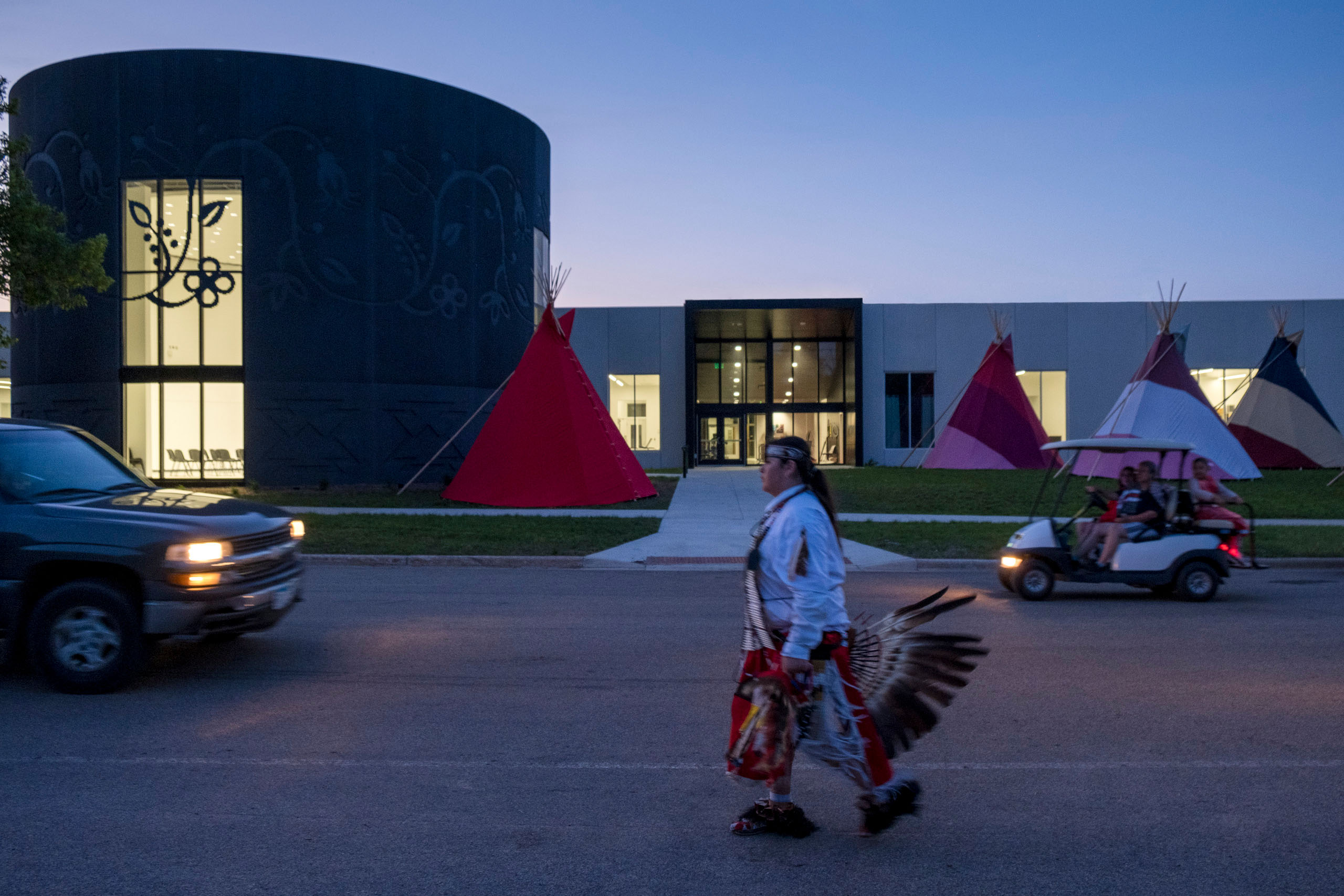
Process
The design team conducted several community engagement sessions with the Lower Sioux Community to discuss their goals and needs, while establishing a strong relationship with the tribe to deliver a meaningful design for the building. As a result of these sessions, the building incorporates graphics, textures, shapes, and colors that carry symbolic meaning specific to the Dakota people. Exterior and interior graphics integrated into the precast and metal sunshades were influenced by traditional floral and geometric patterns found in the Dakota flag and language. Dentalium dresses inspired the colors and textures throughout the building. The circular shape of the shared community space within the building represents the 7 directions: cardinal directions, sky (through the oculus in the ceiling), ground, and the human soul as the center.
People
Team
- Craig Scranton
- Joshua Harrold
- Ryan McCabe
- Fiona Bhuyan
- Barbara Cugno
- Dalena Nguyen
Client
Lower Sioux Indian Community
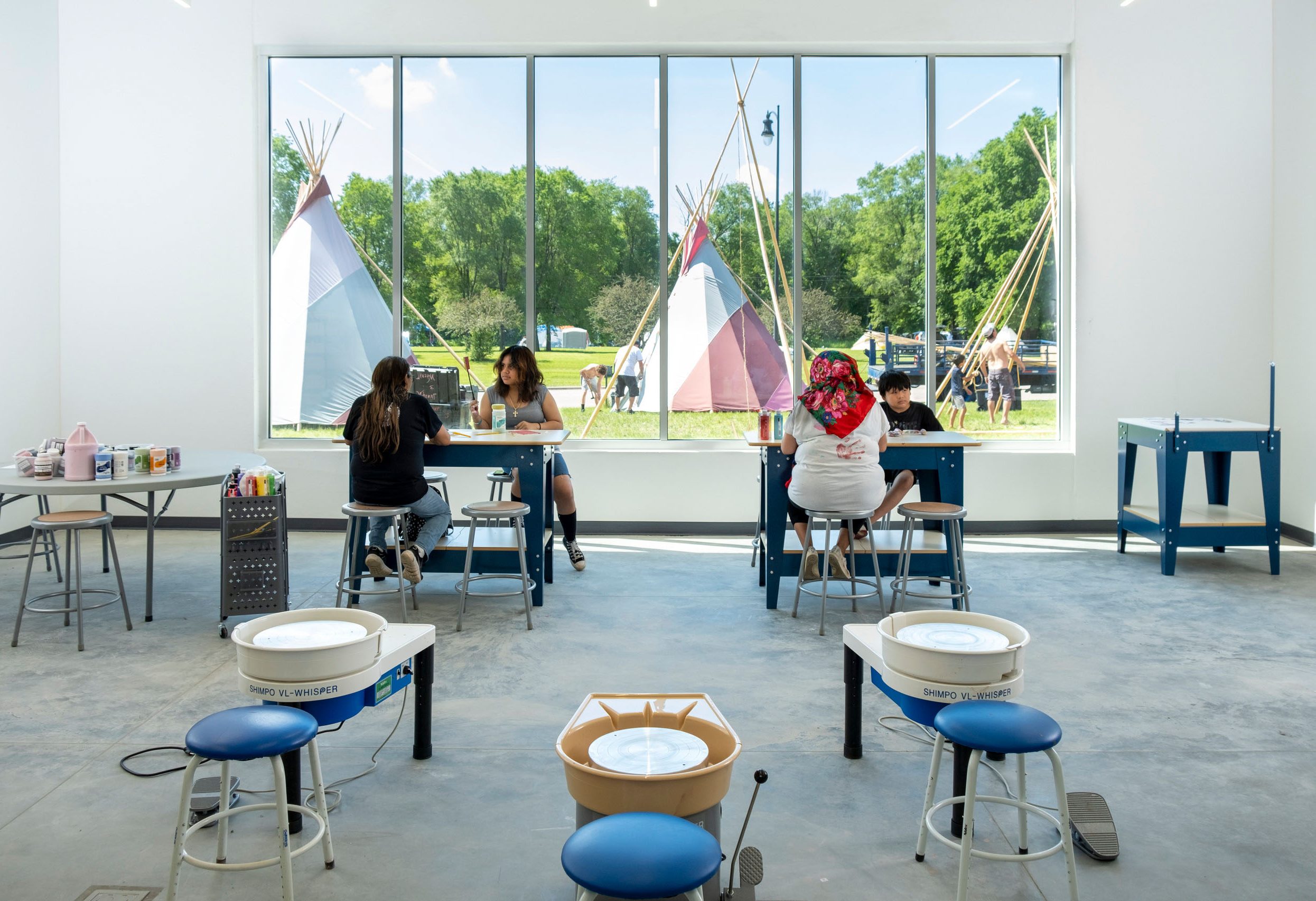
Media
